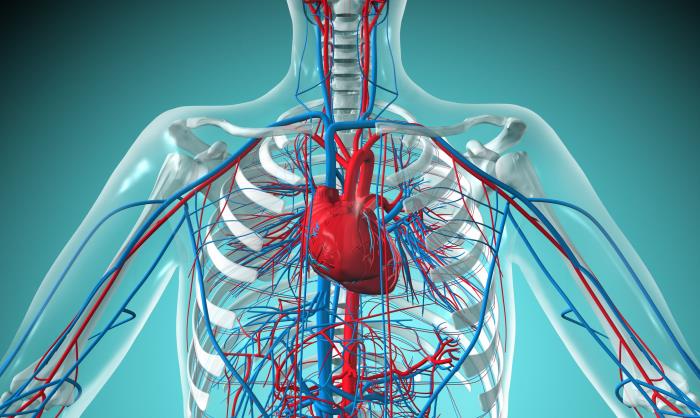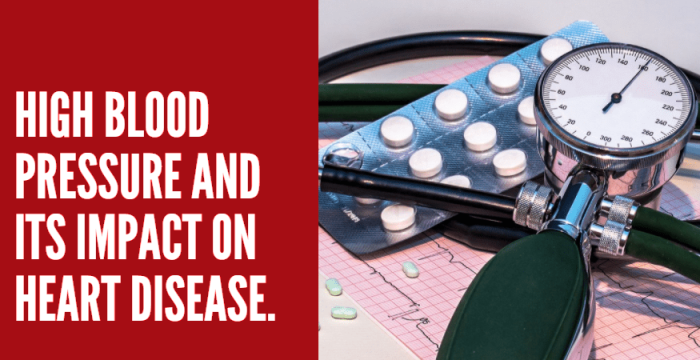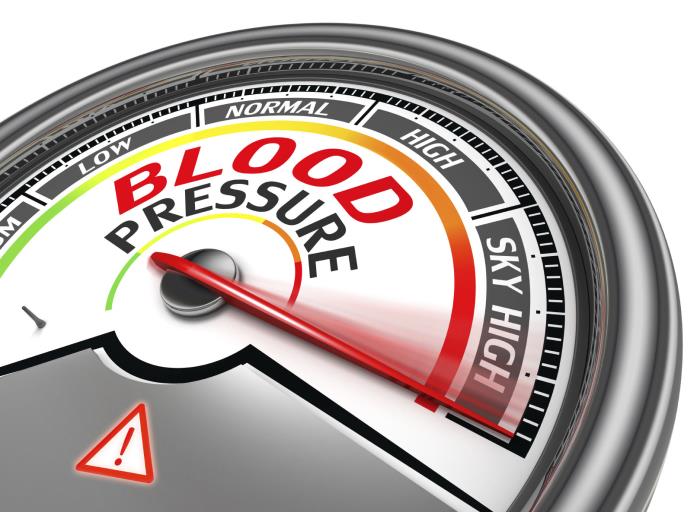High blood pressure, also known as hypertension, is a common but serious condition that significantly impacts heart health. It occurs when the force of blood against the artery walls is consistently too high, leading to long-term damage to the cardiovascular system. Managing high blood pressure is critical to preventing severe heart conditions, including the need for interventions like angioplasty. Understanding how hypertension affects the heart and arteries helps underscore the importance of early detection and treatment.
What is High Blood Pressure (Hypertension)?
High blood pressure, or hypertension, is when the force exerted by the blood on the walls of the arteries is persistently elevated. Blood pressure is measured in millimeters of mercury (mmHg) and is recorded as two numbers: systolic (the pressure during a heartbeat) and diastolic (the pressure between beats). Normal blood pressure is typically below 120/80 mmHg. Hypertension occurs when readings consistently rise above 130/80 mmHg. Over time, this excessive pressure can cause damage to the arteries and organs, particularly the heart.
How High Blood Pressure Affects the Cardiovascular System
Hypertension exerts extra pressure on the arteries, causing them to become stiff, narrow, or damaged over time. This leads to decreased blood flow and oxygen supply to vital organs, especially the heart. The constant strain forces the heart to work harder, leading to thickening of the heart muscle (hypertrophy) and increasing the risk of heart failure. The arteries that supply blood to the heart, known as the coronary arteries, can also become narrowed, increasing the likelihood of heart attacks, arrhythmias, or other cardiovascular complications.

The Link Between High Blood Pressure and Coronary Artery Disease
Coronary artery disease (CAD) occurs when the arteries supplying blood to the heart become narrowed or blocked due to plaque buildup. High blood pressure accelerates this process by damaging the inner lining of the arteries, making it easier for cholesterol and other substances to form plaque. As the arteries narrow, the heart receives less blood, leading to chest pain (angina), shortness of breath, and an increased risk of heart attack. Hypertension is one of the leading contributors to the development and progression of CAD.
Understanding the Role of Angioplasty in Treating Heart Conditions
Angioplasty is a minimally invasive procedure used to restore blood flow in arteries that have become narrowed or blocked, typically due to coronary artery disease. During the procedure, a small balloon is inflated inside the artery to widen it, and a stent (a small mesh tube) may be placed to keep the artery open. Angioplasty helps improve blood flow to the heart, relieving symptoms like chest pain and reducing the risk of heart attack. It is often recommended for patients with severe artery blockages caused by high blood pressure and other cardiovascular issues.
Why High Blood Pressure Increases the Risk of Needing Angioplasty
High blood pressure significantly increases the risk of needing angioplasty because it accelerates the narrowing of the arteries through a process called atherosclerosis. Over time, the persistent pressure damages the arterial walls, leading to plaque buildup that restricts blood flow. As the arteries become more constricted, the risk of heart attack or severe chest pain increases, often requiring angioplasty to restore adequate blood flow to the heart. Effective management of hypertension is crucial in preventing the progression of artery blockages and reducing the likelihood of needing surgical interventions like angioplasty.
Understanding High Blood Pressure and Heart Health
High blood pressure, also known as hypertension, is a common but serious condition that significantly impacts heart health. It occurs when the force of blood against the artery walls is consistently too high, leading to long-term damage to the cardiovascular system. Managing high blood pressure is critical to preventing severe heart conditions, including the need for interventions like angioplasty. Understanding how hypertension affects the heart and arteries helps underscore the importance of early detection and treatment.

How Hypertension Can Lead to Arterial Blockages
High blood pressure, or hypertension, exerts excessive force on artery walls, causing damage over time. This damage can lead to the buildup of plaque, narrowing the arteries (atherosclerosis) and increasing the risk of blockages. Arterial blockages restrict blood flow to the heart, raising the risk of heart attack and the need for procedures like angioplasty.
Angioplasty Procedure: What It Involves and How It Helps
Angioplasty is a minimally invasive procedure used to open blocked arteries. During the procedure, a catheter with a balloon is inserted into the affected artery. Once the balloon is inflated, it widens the artery, improving blood flow. In many cases, a stent (a small mesh tube) is placed to keep the artery open long-term.
Managing High Blood Pressure Before Undergoing Angioplasty
Controlling blood pressure before angioplasty is crucial for reducing risks during surgery. Physicians may prescribe medications such as beta-blockers or ACE inhibitors to stabilize blood pressure levels. Lifestyle changes like reducing sodium intake, managing stress, and regular exercise can also help control hypertension.

Risks of Angioplasty in Patients with Uncontrolled Hypertension
Patients with uncontrolled high blood pressure face higher risks during angioplasty, including artery rupture, excessive bleeding, and difficulty in stent placement. Unmanaged hypertension can also lead to complications such as heart attack or stroke during or after the procedure.
Post-Angioplasty: Managing High Blood Pressure to Prevent Complications
After angioplasty, it’s essential to maintain blood pressure control to prevent further arterial damage and complications like stent restenosis (narrowing). Managing blood pressure can reduce the risk of additional blockages and support heart health.
How Blood Pressure Control Affects Long-Term Angioplasty Outcomes
Proper blood pressure management post-angioplasty significantly impacts long-term success. Uncontrolled hypertension can lead to the recurrence of arterial blockages, increasing the chances of repeat procedures. Maintaining optimal blood pressure supports artery health and prolongs the benefits of angioplasty.
Medications Used to Manage Hypertension After Angioplasty
- ACE inhibitors to relax blood vessels.
- Beta-blockers to reduce heart rate and workload.
- Calcium channel blockers to prevent vessel constriction.
These medications, along with lifestyle changes, help keep blood pressure in check and reduce the risk of complications.
Lifestyle Changes to Control Blood Pressure and Support Heart Health
Making healthy lifestyle changes is critical in managing high blood pressure after angioplasty. These changes include reducing sodium intake, eating a balanced diet rich in fruits and vegetables, limiting alcohol consumption, quitting smoking, and engaging in regular physical activity.
Diet and Exercise: Key Strategies for Lowering Blood Pressure
A heart-healthy diet, such as the DASH (Dietary Approaches to Stop Hypertension) diet, emphasizes fruits, vegetables, whole grains, and lean proteins to help lower blood pressure. Coupled with regular exercise, these dietary changes can reduce hypertension and support heart health post-angioplasty.
The Role of Stress in Blood Pressure and Heart Health
Chronic stress can elevate blood pressure, which negatively affects heart health. Managing stress through techniques like mindfulness, meditation, yoga, and regular relaxation can lower stress levels, helping to maintain healthy blood pressure.
Monitoring Blood Pressure Regularly After Angioplasty
Regular blood pressure monitoring is essential for patients after angioplasty to ensure that levels remain stable. Home monitoring devices can help track blood pressure between doctor visits, allowing for timely adjustments in medications or lifestyle.
The Connection Between High Blood Pressure and Stent Failure
High blood pressure can increase the risk of stent failure, where the artery narrows again after angioplasty (restenosis). Maintaining healthy blood pressure levels is crucial to keep the stent functioning properly and prevent the recurrence of arterial blockages.
Advances in Treating Hypertension and Reducing the Need for Angioplasty
Advances in hypertension treatment, such as newer medications and lifestyle-based approaches, can help patients manage their blood pressure more effectively. These advances reduce the need for angioplasty by preventing the development of arterial blockages.
Understanding the Different Types of Stents Used in Angioplasty
Explore the various types of stents utilized in angioplasty. This section details the differences between bare-metal and drug-eluting stents, their applications, and the advantages and disadvantages of each type, helping patients make informed decisions about their treatment options.
The Role of Cardiac Rehabilitation After Angioplasty
Learn about the importance of cardiac rehabilitation following angioplasty. This section discusses how rehabilitation programs can aid recovery, improve heart health, and enhance the quality of life by providing tailored exercise, education, and support for patients post-surgery.
Conclusion: Protecting Heart Health by Managing High Blood Pressure
Managing high blood pressure is critical to preventing heart problems and the need for invasive procedures like angioplasty. Through a combination of medications, lifestyle changes, and regular monitoring, patients can protect their heart health and reduce the risk of complications.
Best Coronary Angioplasty in India
The Best Coronary Angioplasty in India is a minimally invasive procedure that helps restore blood flow to the heart by widening blocked arteries, improving cardiovascular health and reducing chest pain.
Best Coronary Angioplasty Hospitals in India
The Best Coronary Angioplasty Hospitals in India offer state-of-the-art facilities and highly skilled cardiology teams, ensuring comprehensive pre- and post-operative care for effective treatment outcomes.
Coronary Angioplasty Cost in India
The Coronary Angioplasty Cost in India is affordable, with transparent pricing and flexible options, making high-quality cardiovascular care accessible for patients.
Best Coronary Angioplasty Surgeons in India
The Best Coronary Angioplasty Surgeons in India are experienced specialists in interventional cardiology, dedicated to providing personalized and effective treatment for each patient.
FAQ:
How does high blood pressure impact the heart?
High blood pressure damages artery walls, leading to blockages that can restrict blood flow to the heart, increasing the risk of heart attacks and other cardiovascular issues.
Why is high blood pressure a risk factor for angioplasty?
Uncontrolled high blood pressure increases the likelihood of arterial blockages, making angioplasty necessary to restore proper blood flow. It also raises the risk of complications during the procedure.
Can angioplasty lower high blood pressure?
While angioplasty improves blood flow, it does not directly lower blood pressure. Proper management of hypertension post-procedure is essential for long-term success and heart health.
What are the risks of having high blood pressure during and after angioplasty?
High blood pressure during angioplasty can lead to complications like artery rupture or restenosis after the procedure, increasing the risk of a repeat surgery.
How can I control my blood pressure after angioplasty to prevent complications?
Controlling blood pressure after angioplasty involves taking prescribed medications, following a heart-healthy diet, exercising regularly, and managing stress effectively. Regular monitoring and follow-up with your healthcare provider are also crucial.
Explore the Best Heart Care Resources in India
Find some of the top cardiologist, surgeons and the best heart hospitals in India
Best Heart Hospitals in India
Choosing the right hospital is crucial for successful heart treatments. If you want to explore trusted options, check the list of Best Heart Hospitals in India offering world-class facilities, advanced cardiac care units, and experienced teams for both simple and complex procedures.
Best Cardiologists in India
Finding the right cardiologist can make a huge difference in early diagnosis and long-term heart health. If you are looking for the Best Cardiologists in India, see this curated list of experts who specialize in preventive care, interventional cardiology, and complex heart disease management. Check the full list Best Cardiologists in India.
Best Cardiac Surgeons in India
If you are planning for heart surgery and need top-level expertise, we recommend exploring the Best Cardiac Surgeons in India. These surgeons have a proven record in performing bypass surgeries, valve replacements, and minimally invasive heart operations with excellent outcomes.